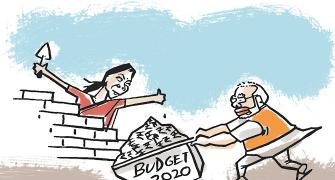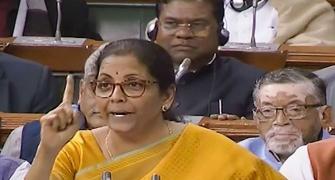But it may come with a downside risk of further rise in prices of several products.

With an aim to reform the country’s electronic manufacturing sector, Finance Minister Nirmala Sitharaman has introduced revised import duty rates for some key components used in mobile handsets and consumer appliances.
The move comes at a time when the government is finalising a new electronics manufacturing policy to boost local production.
But it may come with a downside risk of further rise in prices of several products.
In her second Budget on Saturday, the minister announced that the government will soon come up with a new policy to promote local manufacturing of electronic items.
While, the fineprint is yet to be finalised, Sitharaman said, “I propose a scheme focused on encouraging manufacture of mobile phones, electronic equipment and semi-conductor packaging.”
According to sources, since the discontinuation of the Modified Special Incentive Package Scheme (M-SIPS), which used to primarily drive local manufacturing since 2012, no concrete scheme has been in place to incentivise manufacturers in the sector.
Like M-SIPS, the proposed scheme will offer attractive incentives through tax benefits and easy availability of amenities like electricity and land, to manufacturers, who set up plants in India.
The benefit will be for procuring electronic components.
It will also be aligned with the revised corporate tax rate of 15 per cent for new manufacturers.
However, the minister proposed increase in Customs duty on items like compressors for ACs and refrigerators (to 12.5 per cent from 10 per cent), printed circuit board assemblies or PCBAs (to 20 per cent from 10 per cent), display assembly and touch panels for mobiles and on components for electric vehicles (EVs).
Duty on smaller items like motor components used in fully finished air purifiers, washing machines and coolers have been raised to 10 per cent from 7.5 per cent.
The proposed hike in customs duty, just ahead of launch of the new scheme, is a step towards pushing sellers towards local production further.
However, lack of a local manufacturing capacity for many of these products at the moment will lead to price rise.
Kamal Nandi, president of Consumer Electronics and Appliances Manufacturers Association (CEAMA) and executive vice-president of Godrej Appliances, said while the intention is good, it will lead to price escalation in the short run, on products like refrigerators, air conditioners, coolers, washing machines, air purifier and chest freezers.
Reduction of goods and service tax (GST) rates on ACs and large screen TV sets (from 28 per cent to 18 per cent) will help manufacturers and buyers absorb some of the increase in cost and spur demand.
Manish Sharma, president & CEO, Panasonic India & SA, and chairperson of electronics & manufacturing committee of FICCI, said, while promoting local manufacturing is a welcome move, a definitive timeline would have boosted the industry’s sentiments.
Instead of supporting a nascent sector like EVs, increase in import duty on fully finished vehicles and components would not go down well, said Pankaj Tiwari, business head, Nexzu Mobility - a local manufacturer of electric scooters.
Customs duty has been hiked by 10 per cent on semi-knocked down and 5 per cent on complete knocked down parts.
Faisal Kawoosa, lead analyst at TechArc, estimates that the cost of smartphone will rise by 5-7 per cent as components like PCBAs, display assemblies and touch panels become costlier.
However, if large suppliers of these items from China and Taiwan respond to these changes by reducing prices to a certain extent, then the impact could be less.
“So, the effective change in cost will be miniscule to force handset companies towards investing large sums to expand local production,” he said.
According to a top executive of a leading handset brand, the real impact, if any, will be felt only from May as the new rates come into effect from April.
Photograph: Paul Hanna/Reuters










